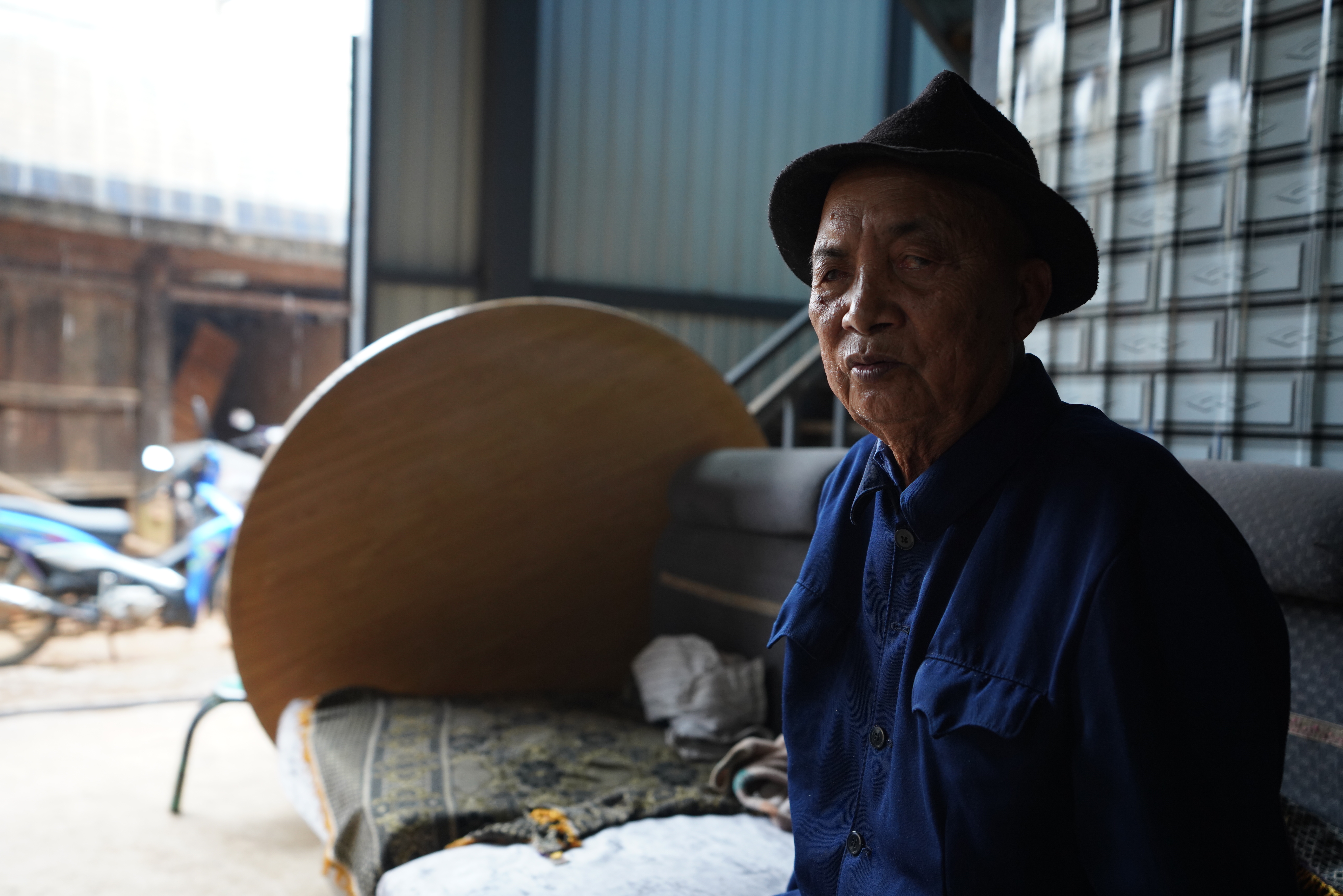
Ai Zhangying, a member of the Blang ethnic minority, is photographed at his home in Blang Mountain Township, Yunnan Province, SW China, on June 13, 2019. (Xinhua/Qin Qing)
"In the past, Blang was known for five things -- tigers, bandits, disease, poverty and opium, but as life has gotten better, they have been replaced by tea, buildings and cars," said Ai Zhangying, 84.
KUNMING, Aug. 7 (Xinhua) -- Ai Zhangying, 84, of the Blang ethnic minority, has witnessed rapid socioeconomic development in his hometown over the last seven decades.
"I grew up in a primitive society," Ai said in his house in Blang Mountain township, Yunnan Province, southwest China.
Before 1949, most residents were suffering the effects of a severely impoverished society, with slash-and-burn cultivation and slow socioeconomic development. But those residents lives were directly transformed thanks to the development of a contemporary society after the founding of the People's Republic of China.
"In those days, people lived in thatched sheds and none of the families had enough to eat," Ai said. "The wealthier ones could fill their bellies for six to 10 months a year, and the poor only had food for two or three months."
According to Ai, land belonged to primitive family communes when he was young. "People only engaged in slash-and-burn farming, planting crops such as rice, corn and beans."
"Due to a low-level of productivity, we usually planted a hillside only to harvest a pot," he said.
When facing grain shortages, some residents would dig wild herbs or go hunting for food in the mountains, Ai added. "It would be greatly fortunate if one bumped into wild honey. A small bottle of wild honey could be exchanged for about three kilograms of rice."
Meanwhile, Blang Mountain, located on the China-Myanmar border, was troubled by harassment and threats from bandits at that time, worsening the living situation there.
"Things started to change in 1952 when the People's Liberation Army (PLA) came to Blang, helping us break through the dark clouds and see the sun," he said. "They wiped out the bandits, introduced preferential policies for ethnic groups and helped us develop agriculture."
According to Ai, the PLA brought villagers hoes, sickles, seeds and other capital goods and taught them how to reclaim paddy fields, plow with cattle and transplant seedlings.
After the liberation of the Blang Mountain in 1953, Ai was selected as head of the militia in his village.
"There were more than 200 people in our militia who used various kinds of weapons such as rifles, submachine guns and grenades, to fight against leftover bandits," Ai said.
"One bandit offered a reward of 500 local silver coins for my head," he added.
Tough days gradually left Blang as China's reform and opening up deepened after 1978, as well as the roll-out of a nationwide poverty relief campaign.
In 2018, the township invested more than 1.99 million yuan (289,000 U.S. dollars) to promote industrial development of rice, sugarcane, tea and pig farming, and rebuild 325 dilapidated houses.
A total of 41 impoverished families received microcredit loans last year, totaling 1.99 million yuan.
The local government has provided job opportunities, from which a cleaner can receive a subsidy of 820 yuan a month and a forest ranger can earn an annual sum of 10,000 yuan.
The number of residents living below the poverty line has dropped to 86 from 4,008 in 2013 in Blang and the whole township is expected to shake off poverty and strive for a prosperous society within this year.
The township's per capita disposable income reached 8,206 yuan last year, up 109.4 percent from 2013.
At the age of 84, Ai now lives happily with his family. Five of his children take turns to look after him.
Except for his hearing loss, the old man is generally in good health. With no need to worry about what's to eat for his next meal, Ai likes to take walks, watch TV and chat with his family, enjoying his autumn years.
"In the past, Blang was known for five things -- tigers, bandits, disease, poverty and opium, but as life has gotten better, they have been replaced by tea, buildings and cars," he said. "From primitive to moderately prosperous, it is the government that has led us to a beautiful life."



